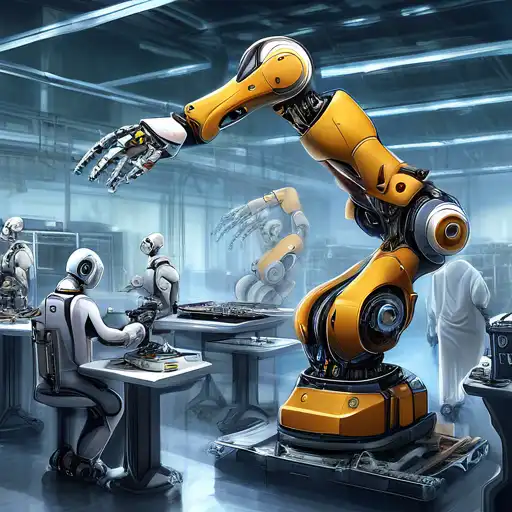The Revolutionary Impact of Robotics on Modern Manufacturing
In the realm of manufacturing, robotics has emerged as a game-changer, revolutionizing how products are designed, produced, and delivered. This transformation is not just about automating repetitive tasks but also about enhancing precision, efficiency, and safety in manufacturing processes. As we delve deeper into the 21st century, the integration of robotics in manufacturing is setting new benchmarks for productivity and innovation.
Enhancing Efficiency and Productivity
One of the most significant benefits of robotics in manufacturing is the remarkable increase in efficiency and productivity. Robots are capable of operating 24/7 without fatigue, drastically reducing production times and increasing output. This relentless efficiency enables manufacturers to meet the growing demands of the global market while maintaining high-quality standards.
Improving Precision and Quality
Robotics technology has brought unprecedented precision to manufacturing processes. With advanced sensors and programming, robots can perform intricate tasks with accuracy that far surpasses human capabilities. This precision ensures that every product meets strict quality controls, reducing waste and rework, and ultimately saving costs.
Boosting Safety in the Workplace
Manufacturing environments can be hazardous, with risks of injuries from heavy lifting, exposure to harmful substances, or accidents with machinery. Robotics mitigates these risks by taking over dangerous tasks, thereby creating a safer workplace for human employees. This not only protects workers but also reduces liability and insurance costs for manufacturers.
Driving Innovation and Flexibility
The adaptability of robotics in manufacturing is fostering innovation and flexibility in production lines. With the ability to quickly reprogram robots for different tasks, manufacturers can easily switch between product lines or customize products to meet specific customer needs. This flexibility is crucial in today’s fast-paced market, where consumer preferences and trends are constantly evolving.
Challenges and Future Prospects
Despite the numerous advantages, the integration of robotics in manufacturing is not without challenges. High initial investment costs, the need for skilled personnel to operate and maintain robotic systems, and concerns over job displacement are significant hurdles. However, as technology advances and becomes more accessible, these challenges are expected to diminish, paving the way for a more automated and efficient manufacturing sector.
Looking ahead, the future of manufacturing with robotics is bright. With ongoing advancements in artificial intelligence and machine learning, robots are becoming smarter, more autonomous, and capable of performing complex tasks. This evolution promises to further transform manufacturing, making it more sustainable, efficient, and innovative.
For more insights into how technology is shaping industries, explore our technology trends section.
